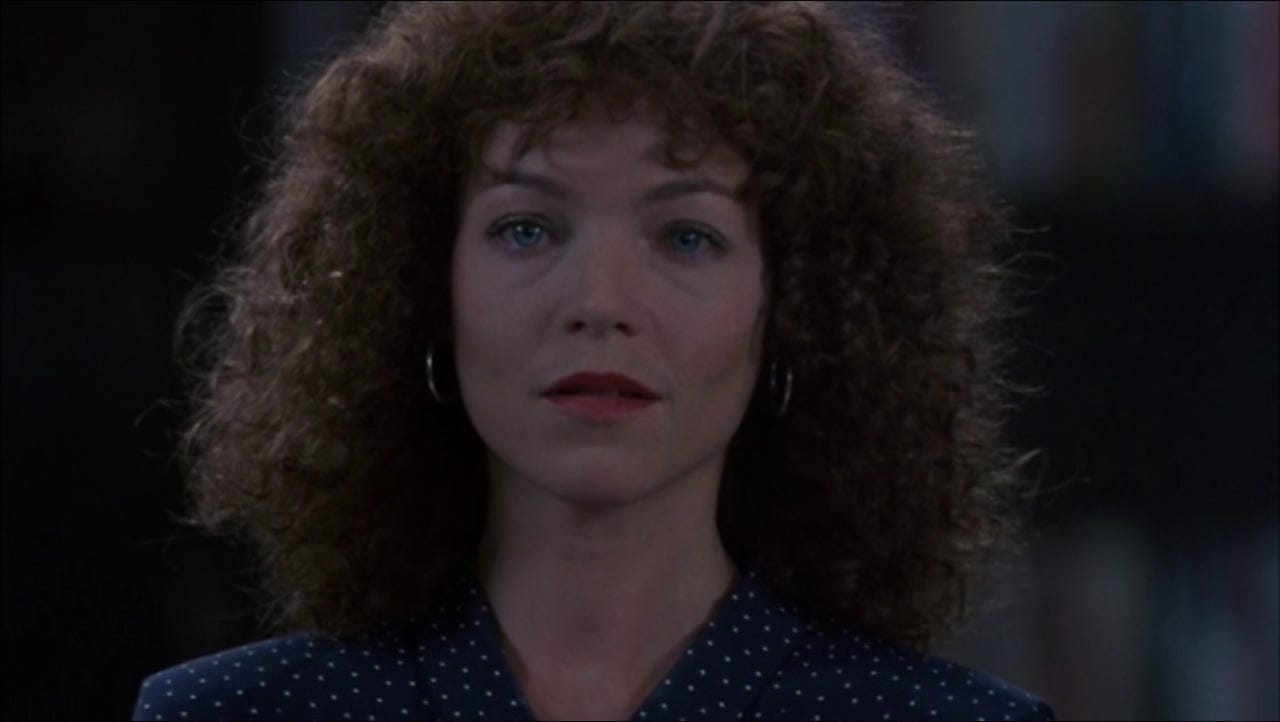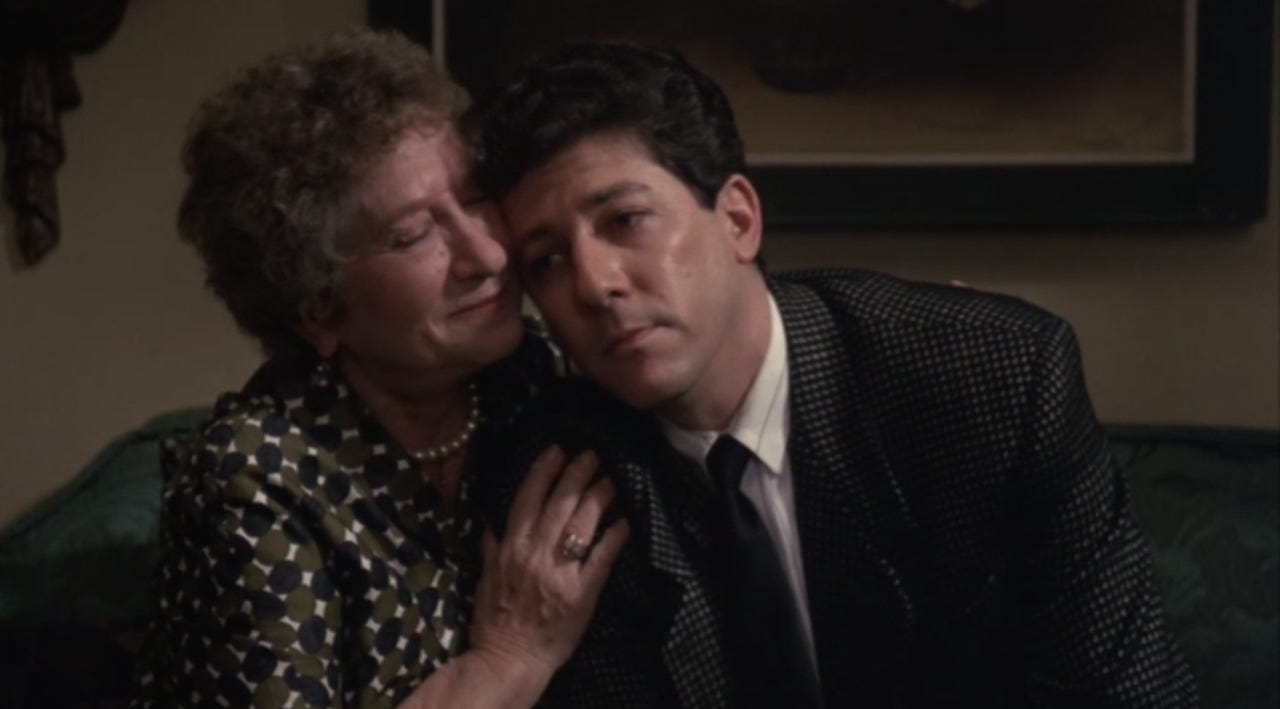I promise it’s not intentional that I’ve been writing about films with Jewish themes this year, but I’m back again with Crossing Delancey, a movie I had the opportunity to revisit over the holiday weekend. My mom was in town and we were plagued with a rainy Friday, so I put this on, keeping in mind her movie criteria: something light, something with joy, and something of moral value. Okay, so you don’t want to watch Dancer in the Dark? Mom, you’ve got to see this Amy Irving movie.
Irving plays Isabella, a woman in her early 30s who works at a bookstore uptown. She helps curate readings and private gatherings to support writers, and seems to have achieved what New Yorkers spend a lifetime looking for: joy amidst the New York Struggle. She has her own horrible apartment, close friends since high school, flirtations with a Dutch author/playboy (played by Paul Verhoeven veteran Jeroen Krabbé) and a yenta grandmother to entertain after her parents retired to Florida. What she doesn’t have, to Bubbe Ida’s disappointment, is a husband.
The ever-meddling Bubbe enlists the help of a friend, Jewish matchmaker Hannah (played by legend Sylvia Myles), to help Izzy out with her problem, a problem that Izzy makes clear IS NOT a problem. Nevertheless, she knows it’s not possible to refuse a Yiddish grandmother, and skeptically meets Sam Posner, a simple LES mensch who has taken over the family pickle shop after his father passed on. And this begins our rom-com!
—
Directed by the severely underrated Joan Micklin Silver, who shoots late 80s New York with the love of someone who has found themselves there, Crossing Delancey becomes more than just a tale of surrendering oneself to life’s surprises. This go around, its boldness clicked. Silver and writer Susan Sandler have given us a heroine who is quite frustrating.
Isabella is pretentious, has aspirations for a larger, cultured life, maybe a WASP-ier one too. Time and time again, she insults and undervalues Sam, and the film takes on a surprising shape: it becomes a critique of Isabella’s bourgeois dreams. At first her resistance to being set up feels fair, even as Sam proves himself to be less of a schlub and more curious and open about life than the writers Isabella worships. But as it goes on, Silver has us see Isabella’s stubbornness turn to cruelty, as she leads Sam on and then discards him.
In an early scene, Sam makes a romantic gesture by sending her a hat from a local hat maker. When she goes to see him at his shop, to say thanks, to maybe flirt, she catches sight of him and his employees, arms deep into barrels of pickles, their hands covered in that vinegar-y delight…she quickly turns around and tries to walk away. This can’t be her man.
Micklin and the film don’t disdain Isabella or her independence, by any means. Crossing Delancey admires her hustle, and isn’t backwards in its representation of single women. We meet a single friend of Isabella’s at her newborn son’s bris, and the film critiques the structures that prevent this new mom from receiving support and acceptance from her family. It’s not admonishing wanting to do life alone. It just has Isabella take a second look at what she values. It then presents a contrast in someone who won’t compromise her spirit but will still make her consider why she fetishizes a sort of mobility that can only lead to emptiness.
The best scene in the film comes on Isabella’s birthday, as she enjoys a hot dog at some downtown joint. A woman enters the shop and begins to sing. The moment almost teeters into magical realism, into Lynch territory even, but it stays rather grounded. Irving’s eyes fixate on the woman, who practically serenades her with the lyrics, “Once you have found him, never let him go... Once you have found him, never... let... him... go!!”
Who is the him? A romantic partner and husband, for sure. But it isn’t just a call for marriage. Silver and Sandler are asking Isabella to invest in a lifestyle she doesn’t have to chase. Someone stable and someone grounded. Earlier in the movie, she gathers with her friends at a diner and they speak about how there are no viable men in New York. They’re right of course, but maybe what they want, what Isabella envisions, needs to be considered. There’s nothing wrong with a guy who sells pickles.
Crossing Delancey is available to rent on Hulu, Prime, YouTube, and a series of other platforms I don’t recognize.





I love this film with alllll of my heart. we all deserve our own pickle man.